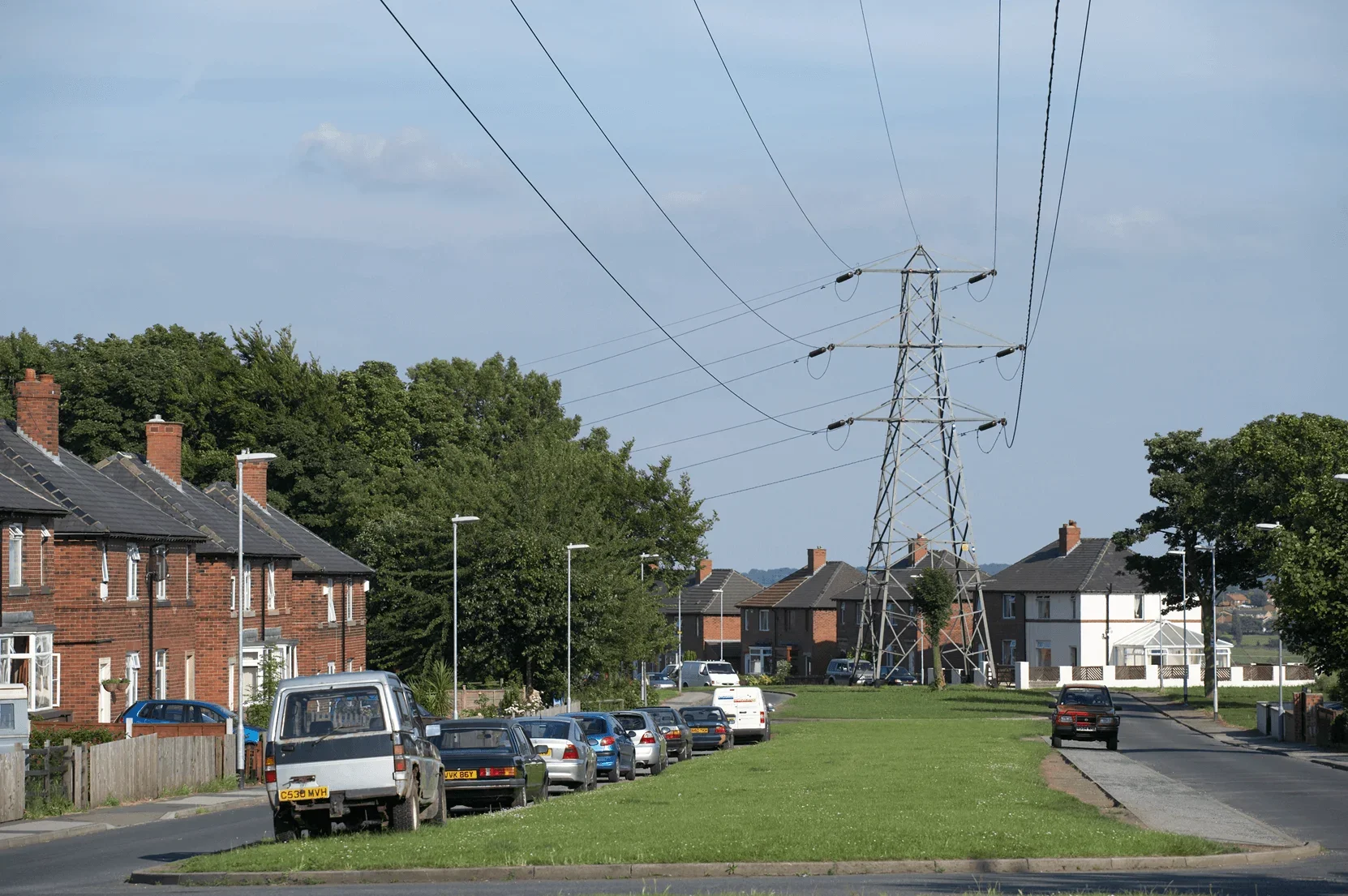BUSINESS ENERGY
A complete guide to business energy for shops
Read time: 5 minutes
By Les Roberts, Business Energy Expert
8th January, 2026
Shops can use a lot of energy. Electricity is needed to light the shop floor and displays, to power equipment and appliances, and then there's the energy used for heating and cooling. The costs soon add up.
That’s why it’s important to understand what you’re being charged for, so you can make sure you’re on the best deal and keep control of your business energy bills.
What is the average business electricity bill in 2026?
The amount you pay for business electricity varies depending on your business’s location and your energy supplier, but these average amounts will give you an idea of what to expect to pay:
| Business size | Average price (per kWh) | Standing charge (daily) | Average annual price |
| Micro business | 25.8p | 58.5p | £2,794 (based on annual usage of 10,000 kWh) |
| Small business | 26.0p | 70.0p | £5,456 (based on annual usage of 20,000 kWh) |
| Medium business | 26.3p | 142.4p | £11,040 (based on annual usage of 40,000 kWh) |
Note: Prices are correct as of January 2026. Rates and bill size may vary according to your meter type and business location. The prices you’re quoted may be different from the averages shown. The figures shown are the average unit rates and standing charges quoted by Bionic per business size from January 1 to January 7, 2026.
How do shops use gas and electricity?
Although retail is a diverse sector, there are many common areas where energy is wasted.
Around a third of all energy used by shops goes on heating, with a quarter used for cooled storage and a quarter for lighting. Then a combination of ICT equipment, hot water, catering, fans and other factors make up the rest of the total energy consumption in the retail sector.
From boutique shops to sprawling department stores, every retailer’s energy use can vary. This makes it difficult to pinpoint when and how your business uses energy. But we can give you an average figure of how much energy you can expect to use, based on the size of your business.
| Business size | Number of employees | Average annual gas usage | Average annual electricity usage |
| Microbusiness | Less than 10 | 5,000-15,000 kWh | 5,000-15,000 kWh |
| Small business | 10-49 | 15,000-30,000 kWh | 15,000-25,000 kWh |
| Medium business | 50-249 | 30,000-65,000 kWh | 25,000-50,000 kWh |
How to make your shop more energy efficient
There are lots of things you can do to make your shop more energy efficient and bring your business energy costs down.
- Switch off: Make sure you switch off all energy-consuming equipment when you don’t need it. You can ask your staff to do this or use timer switches for lights and heating systems.
- Insulate: If your building isn't properly insulated, cold air will get in and hot air will get out. This means your heating systems need to work harder to maintain the right temperature. This uses more energy and costs you more money. Double glazing, ceiling and wall insulation can help, as can cheaper options like draught excluders on doors and windows.
- Maintain: It’s important to ensure your equipment is well maintained and running properly so it doesn’t waste any energy. You can often make energy efficiency improvements as part of your routine maintenance procedures for no extra cost.
- Upgrade: If you can afford to, replace old, inefficient equipment with newer, more energy-efficient models.
Here are some practical tips for lighting, heating, and other appliances that might be in your shop.
- Lighting - Lighting doesn’t just brighten your store—it sets the mood, keeps customers safe, and encourages them to linger (and buy!). But it can also be a big drain on your energy bill. Switching to energy-efficient lighting is a smart move that keeps your shop looking great while saving you money. It's also worth considering using lower lighting in non-customer areas like stock rooms, store cupboards and staff toilets. Fiting motion sensors in these areas can also help cut down usage. If you have lights outside your shop, fitting light sensors will make sure the lights only come on when it’s dark outside.
- Heating - Nobody wants to shop in an icebox! A warm, welcoming store helps keep customers comfortable and coming back. But don’t go overboard—cranking the thermostat up too high could leave shoppers uncomfortable and send your bills soaring. If you can, keep any outer doors closed. This will stop heated air from escaping and cold air from getting in. If you do have to leave your doors open, fitting an air curtain above the door can reduce the amount of warm air that escapes and cold air that gets in.
- Fridges and Freezers - Refrigeration is a must if you’re in the food and drink business. But keeping things cool can be costly. Energy-efficient refrigeration systems can help you cut costs while keeping everything at the perfect temperature to meet safety standards. If you have display refrigerators in your shop, avoid overfilling them - the more products you have on the shelves, the harder it is for air to circulate and the harder the equipment has to work. If your display fridges are fitted with doors, make sure they close properly and the seals fit correctly. Turn off the display lights when the store is closed, and keep the condensers clean and dust-free.
- Electrical Appliances - From tills to tablets, your shop relies on electrical appliances to keep things running smoothly. Regular maintenance is key to keeping energy use efficient. And here’s a top tip: remind your team to switch everything off at the end of the day to avoid unnecessary energy waste.
You can get more tips in our guide to business energy efficiency.

Can you save money by switching energy suppliers?
Absolutely! Switching energy suppliers before your contract ends is one of the easiest ways to cut your business energy costs. By shopping around early and comparing tariffs, you can lock in the best deal for your shop.
Remember, energy prices usually go up over time, so it's unlikely you'll get better rates than those on your current fixed-rate deal. But fixing your rates could cut your energy bills by as much as a third compared to what you'd pay on your supplier's out-of-contract rates. That's why it can pay to compare quotes and lock in your rates as soon as possible.
How to switch business energy suppliers
Switching business energy suppliers might sound complicated, but it doesn’t have to be. Comparing tariffs and providers can take time if you go it alone, but we're here to support your business and keep things as simple as possible.
MoneySuperMarket has teamed up with Bionic to help cut the energy bills at your shop. start a business energy comparison by clicking the "Compare tariffs today" button on this page or go to our main business energy comparison page.
Is it time to compare business energy quotes and switch?
Take the hassle out of sorting your next energy deal. We compare from a panel of suppliers. You choose the rates that are right for your business.
By clicking ‘COMPARE TODAYS RATES’ you agree for us to search your current energy supplier and usage though industry held data. Enter manually
Our experts share essential knowledge on business energy
All related guides
View all energy guides
- A complete guide to business energy for offices
- A complete guide to business energy for restaurants
- A complete guide to business energy for shops
- Average business energy consumption - How much does your business use?
- How to get a business energy audit to save money and boost efficiency
- A complete guide to business energy bills
- Business energy brokers – everything you need to know
- What are no standing charge business energy tariffs?
- Business energy efficiency: how to save energy at your business
- Change of Tenancy - Moving business premises and your energy contract
- Commercial property landlord energy advice
- Energy performance certificate for business
- A complete guide to half hourly electricity meters
- How does the energy market affect the cost of your energy bills?
- How switching to energy efficient lighting can save your business money
- How to pay your business energy bills to save money and avoid late fees
- How your business credit score affects your energy deals
- Compare large and industrial business energy prices
- Prepayment meters for business: The complete 2025 guide for SMEs
- What are renewable energy certificates and REGOs for small businesses?
- Renewable Energy for Business
- Business Smart Meters: Your Guide to Savings, Installation, and Supplier Comparison
- Commercial solar panel electricity
- The nuclear RAB levy explained: what it means for your business
- A business guide to time-of-use energy tariffs
- Business energy tariffs explained
- Everything you need to know about the Smart Export Guarantee (SEG)
- Compare small business & micro business energy prices
- Compare the cheapest business energy suppliers
- What is the Climate Change Levy?
- Business energy meter installation: Your complete guide
- Multi-site meters and business energy management
- How much is VAT on business energy?
- What happens when your energy supplier goes bust?
- What is a letter of authority (LoA) for business energy?
- What is Market-wide Half-Hourly Settlement (MHHS) and how does it work?
- What is business microgeneration?
How to switch business energy suppliers with MoneySuperMarket
We can switch your business to a better energy deal in three simple steps
1
We find your details
Just enter your business address and we'll use industry data to accurately find and understand your energy usage.
2
We talk through your quotes
One of our UK-based energy experts will search our supplier panel and give you a call to talk through your quotes.
3
You choose the deal you want
With all the information to hand, you choose the deal that best suits your business and we’ll handle the switch for you.
Compare today’s business energy rates
By clicking ‘COMPARE TODAY'S RATES’ you agree for us to search your current energy supplier and usage though industry held data. Enter manually






